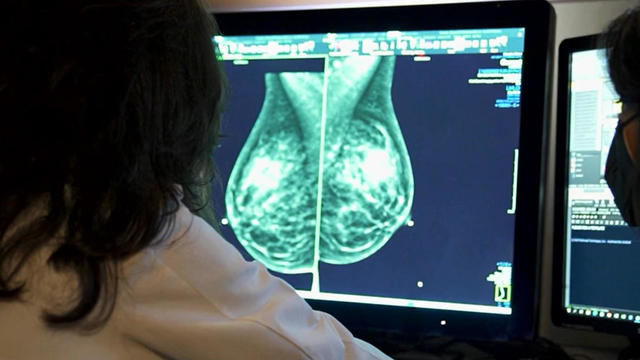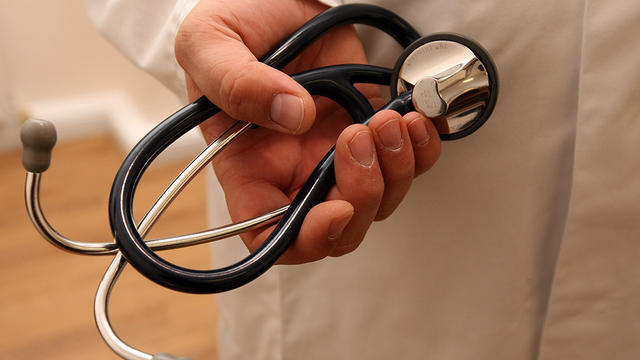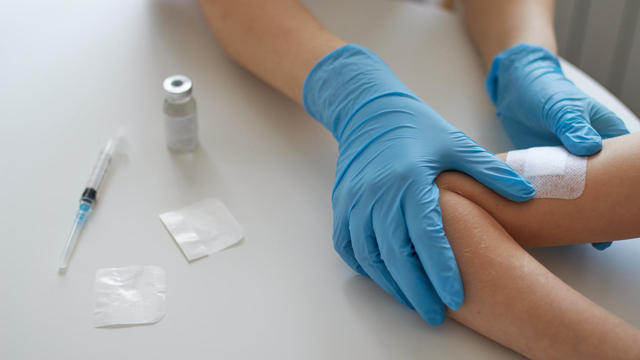
Could saying "hello" to strangers be good for your health?
Chatting it up with people we don't know can boost our mood and give us a greater sense of belonging, both of which can help prolong life.
Watch CBS News

Mallika Marshall, MD is an Emmy-award-winning journalist and physician who has worked at WBZ-TV for more than 20 years.
A practicing physician Board Certified in both Internal Medicine and Pediatrics, Dr. Marshall serves on staff at Harvard Medical School and practices at Massachusetts General Hospital at the MGH Chelsea Urgent Care and the MGH Revere Health Center, where she is currently working on the frontlines caring for patients with COVID-19. She is also a host and contributing editor for Harvard Health Publications (HHP), the publishing division of Harvard Medical School.
Dr. Marshall has more than two decades of media and communications experience on both national and local television as well as on multiple digital platforms. In addition to her role as the HealthWatch Reporter at CBS Boston since 2000, she has been a regular contributor on "CBS Mornings" (formerly "CBS This Morning"), the "CBS Evening News," CBS Newspath, the digital streaming news service CBS News Live (formerly CBSN), and was the Medical Contributor on Katie Couric's daytime talk show "Katie." She also served as the Medical Director for Everyday Health, digital media's popular source of medical news. Dr. Marshall hosted "Dr. Mallika Marshall," a series of health news reports that was nationally syndicated and aired in more than 70 markets, including major cities such as San Francisco, Atlanta, St. Louis, Cleveland, and Houston. She was also an Associate Editor of the Harvard Medical School Family Health Guide and a Contributing Editor for the Harvard Medical School-affiliated website, InteliHealth.
A graduate of Harvard College, Dr. Marshall received her medical degree with high honors at the University of California, San Francisco (UCSF) School of Medicine. She completed her medical residency at Harvard in both Internal medicine and Pediatrics.
Dr. Marshall currently serves as an Elected Director on the Harvard Alumni Association Board of Directors and on the Board of Trustees for The Winsor School in Boston, where she serves as Co-chair of the Equity Committee. She has previously served on the Board of Trustees for The Meadowbrook School of Weston, the Board of Directors for the Urgent Care Foundation, and the Board of Directors for Dress for Success Boston. She has also been a member of the Alpha Omega Alpha Honors Society, the American Medical Association, the American Academy of Pediatrics, and the National Association of Black Journalists.
Dr. Marshall is the recipient of numerous awards and was recently named one of Boston's Most Impactful Black Women. Her outstanding health reporting was recently recognized with a New England Emmy Award. Dr. Marshall is writing a series of children's books that will deliver healthy messages in entertaining stories for school-age children.
She lives in the greater Boston area with her husband and three children.

Chatting it up with people we don't know can boost our mood and give us a greater sense of belonging, both of which can help prolong life.

New research shows that chronic sleep deprivation can lead to long-term health problems.

A new study finds that Tylenol during pregnancy is not associated with autism or other conditions.

Dr. Mallika Marshall answers a viewer's question about whether or not naps can help make up for missed sleep.

A freezing treatment may help patients with breast cancer for whom surgery is not an option.

Dr. Mallika Marshall is answering your latest health questions.

A new study finds that early menopause plus a higher risk for heart disease may put women at higher risk of having dementia later in life.

Having an "active" workstation may improve your brain health.

New research finds that a compound in coffee could help you stay strong as you age.

Researchers at NYU found negative effects can persist even when people switch to jobs with more normal hours.

A growing body of research finds that physical and mental health are tightly linked, especially when it comes to heart health.

Dr. Mallika Marshall answers a viewer's question about what to do about plantar fasciitis.

Researchers at Penn State looked at whether or not eating one avocado a day could improve someone's diet quality.

The CDC has issued an alert to healthcare providers about an increase in potentially deadly cases of meningitis and bloodstream infections.

Dr. Mallika Marshall answers a viewer question on how much Vitamin D is best to consume.